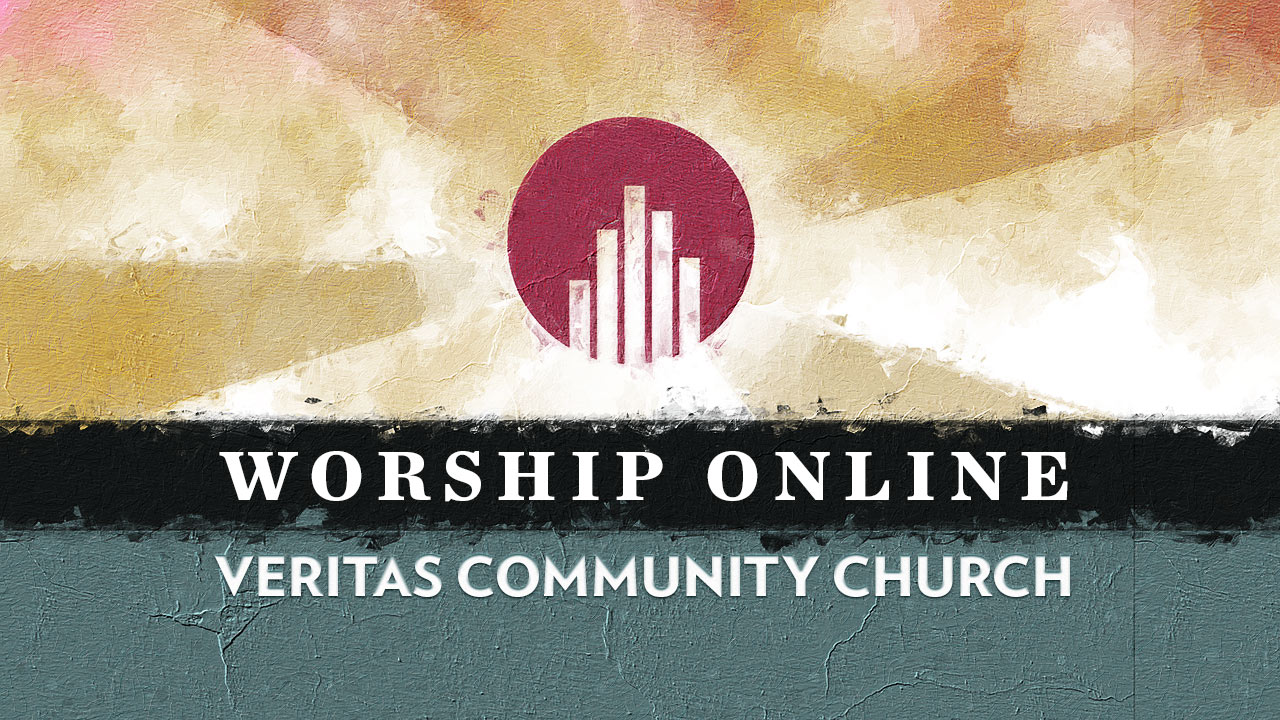Christians: Don’t Give Into Fear
I have said these things to you, that in me you may have peace. In the world you will have tribulation. But take heart; I have overcome the world. – John 16:33
Unless you’ve been living off the grid in a remote cave over the past year, then you have probably sensed the growing political tension across the globe, not to mention within our own borders. In the wake of multiple acts of terrorism at home and abroad, and in the midst of a seemingly endless series of black men being killed by law enforcement officers in foggy circumstances that have yet to result in any clear justice, a political storm has been mounting as we head into a presidential election this year.
Some of the most vocal opinions throughout this season have emerged from the campaign for the Republican Party nomination for president in 2016. In fact, the candidate debates have served as an exposé of the increasingly fear-based and insular discourse within the United States. As exemplified in the first television ad of Donald Trump’s campaign, the clear and indisputable focus of this rhetoric has been about immigration and who should have the right to live within the United States. Everything from birthright citizenship, building a wall along the US-Mexico border, deporting all illegal immigrants, closing our borders to all Muslims, to waging war against anyone in the world who threatens the American way of life has become a topic for debate among candidates, calling into question the very role the US should play in the world.
So despite this country’s heritage as a melting pot of immigrants, it is as clear as ever that race, ethnicity, and religion are being used to “other” certain populations by drawing seemingly definitive boundaries around who does and who does not belong in the country, even while complex questions such as, “Who deserves to be considered a citizen?” and “What does it mean to be a Muslim?” and “What will it actually look like to deport all those people and build a wall like that?” remain unanswered.
Yet while this circle-the-wagons response to acts of terror may be natural for many of our nation’s political leaders and pundits, it should not characterize the way Christians think about identity, belonging, or what to do in the face of global crises. On the contrary, the way Christians define “other” should run deeper than our birth certificates or the passports we keep. Furthermore, rather than having the tendency to move away from those who appear to be different, Christians should embody the incarnational spirit of Christ by being willing to move toward those who are different. This may not be an easy response, and it isn’t human nature, but if the Church is guided by God’s Spirit, its actions will be characterized by his character and his mission. The following points are meant to remind Christians about our true identity and mission in the midst of growing fear about the fate of America and the world.
Remember Who you Really Are
The forgetfulness of God’s people is a consistent theme throughout scripture. It was no different with the early church than it was with the nation of Israel throughout the Old Testament- God’s people are always in need of reminders about who God is, and who they are in light of him and his promises. In his letter to the Ephesian believers, Paul calls on them to remember their former state apart from Christ:
Therefore remember that at one time you Gentiles in the flesh, called “the uncircumcision” by what is called the circumcision, which is made in the flesh by hands—remember that you were at that time separated from Christ, alienated from the commonwealth of Israel and strangers to the covenants of promise, having no hope and without God in the world. But now in Christ Jesus you who were once far off have been brought near by the blood of Christ. – Ephesians 2:11-13
The status of ‘alien’ is something with which Christians should be well acquainted, having experienced with the rest of the world what it’s like to be alienated from God, and by now in Christ living as foreigners in this world. Paul concludes his reminder to the Ephesians by making it clear that their heavenly citizenship is a product of God’s mercy and grace in their lives.
So then you are no longer strangers and aliens, but you are fellow citizens with the saints and members of the household of God, built on the foundation of the apostles and prophets, Christ Jesus himself being the cornerstone, in whom the whole structure, being joined together, grows into a holy temple in the Lord. In him you also are being built together into a dwelling place for God by the Spirit. – Ephesians 2:19-22
Although Paul was gratefully proud of his earthly Roman and Jewish identity, once possessed by God, he always held his heavenly citizenship in higher regard (see Philippians 3). Throughout the latter half of the book of Acts we can clearly see how Paul strategically leveraged his earthly citizenship and ethnicity to gain an audience for the sake of God’s Kingdom, but never the other way around. This is because like the apostle John he understood that “the world is passing away along with its desires, but whoever does the will of God abides forever” (1 John 2:15-17). To Paul, being a Christian meant first being a citizen or creature of heaven, then by God’s appointment having an earthly ethnic and national identity which would one day cease to be contentious. It is incumbent upon American Christians to cling to their heavenly citizenship more dearly than their earthly citizenship, and to strategically utilize the benefits of their earthly citizenship for the sake of the Gospel.
Remember Whose You Are [And Your Mission]
We also need to remember that our heavenly citizenship comes as a result of new ownership of our lives, and that it carries with it new purpose which goes beyond our own personal agenda. Paul had to remind the church in Corinth that they were reconciled to God for a reason:
Therefore, if anyone is in Christ, he is a new creation. The old has passed away; behold, the new has come. All this is from God, who through Christ reconciled us to himself and gave us the ministry of reconciliation; that is, in Christ God was reconciling the world to himself, not counting their trespasses against them, and entrusting to us the message of reconciliation. Therefore, we are ambassadors for Christ, God making his appeal through us. We implore you on behalf of Christ, be reconciled to God. – 2 Corinthians 5:17-20
Furthermore, Paul’s statements to the Corinthians merely reflect Jesus’ last words to his disciples before ascending to heaven.
All authority in heaven and on earth has been given to me. Go therefore and make disciples of all nations, baptizing them in the name of the Father and of the Son and of the Holy Spirit, teaching them to observe all that I have commanded you. And behold, I am with you always, to the end of the age. – Matthew 28:18-20
Jesus makes it abundantly clear that his followers have the responsibility of spreading his teachings and his Kingdom throughout the entire world, and that they will have the full support of his power and authority to do so. The Church should not be afraid of immigration from far flung parts of the world, some of which remain unreached by the Gospel. Instead, Christians must see immigration trends in the United States as a gracious movement of God to fulfill his promise to bring about a multi-ethnic kingdom, and thus gratefully and strategically take advantage of the opportunities such migration affords the Church.
Remember Where You Are Going
Deep down, Christians have no reason to fear racial, ethnic, linguistic, or national diversity. In fact, they should look forward to it as an important aspect of worship and the illustration of God’s glory. Because of God’s faithfulness to his promises and sovereign competence, we can look forward to enjoying an eternity in his presence—and by “we” I mean heavenly citizens who have been purchased by the blood of the Lamb from among every tribe, tongue, and language of the earth.
And when he had taken the scroll, the four living creatures and the twenty-four elders fell down before the Lamb, each holding a harp, and golden bowls full of incense, which are the prayers of the saints. And they sang a new song, saying, “Worthy are you to take the scroll and to open its seals, for you were slain, and by your blood you ransomed people for God from every tribe and language and people and nation, and you have made them a kingdom and priests to our God, and they shall reign on the earth.” – Revelation 5:8-10
So whether it involves going five blocks or 5,000 miles, all of God’s people are called to participate in the work of his global kingdom, the building of which is already underway. In addition to considering how to engage one of the 1 in 10 Franklin County residents who was born outside the U.S., consider the following opportunities to be part of what God is doing around the world.
Taking Action
Matthew 28:19 and Revelation 5:9 reveal God’s passion, vision and resolve to reach every ethnic group on the planet. Veritas is a church committed to making God’s passion, vision and resolve its own. Through righteous and fervent prayer, generous giving, sending and going, Veritas is working to assure the remaining 3,100+ unengaged ethnic groups have access to the gospel. Here’s some ways you can get involved! Remember, while not all followers of Christ are meant to serve Him in a cross-cultural context, all are called to assure the fulfillment of the Great Commission (Matt 28:19). As you read through the following list, prayerfully ask the Lord what He would have you do to bring Christ, the only hope of glory (Col 1:27), to those who have never heard!
- PRAYING: As of January 2016, Veritas has adopted for prayer a series of unengaged ethnic groups. This month we’re praying through a cluster of nine unengaged groups in Somalia. We’re also praying for Veritas missionaries living in the area, that God would use them to effectively communicate the gospel and make disciples among the unengaged around them. Pray with us–everyone should participate on this level; but remember, it’s the prayer of the righteous person that is effective (James 5:16b-18).
- GIVING: God’s passion, vision and resolve is that disciples should be made in every ethnic group. But this, like everything else, takes money–money to train and send missionaries, money to print and distribute the word of God, etc. Read and meditate on the following three passages of Scripture, and then purpose to give sacrificially, trusting God for all you need. Matthew 6:19-24; Mark 12:41-44; and Matthew 6:25-34.
- SENDING: If you’re a leader at Veritas of any kind, keep the task of reaching the nations before the people you’ve been entrusted with. Pray that God would develop in your people a passion for His glory among the nations. And when He calls from among your flock individuals to ‘Go’, encourage them to enter Veritas’ training program for being sent out as a long-term missionary.
- GOING: “The harvest is plentiful, but the laborers are [still] few…” (Matt 9:37). How will the unengaged hear unless someone leaves their place of comfort to go and tell them (Rom 10:13-15)? Give pause here to ask the Lord what He would have of you? Are you willing to leave everything behind for His name’s sake–to carry the gospel to those who have never heard? Is He worthy? Consider the words of the twentieth century martyr, Jim Elliot: “He is no fool who gives up what he cannot keep, to gain what he cannot lose.” If you sense the Spirit may be leading you to long-term missions, please contact matt.hamilton@veritascolumbus.com.
Learn More About Local Immigrants
Data:
http://www.communityresearchpartners.org/portfolios/crp-databyte-columbus-welcomes-the-world/
https://drive.google.com/file/d/0B2nKMiG47vksLXlmZEhXM0QyNW8/view?usp=sharing
http://www.immigrationpolicy.org/just-facts/new-americans-ohio
Stories:
http://www.columbusmonthly.com/content/sections/current-issue/index.html?issue=03-01-2014
http://sherriwilliamsmedia.com/wp-content/uploads/2012/06/SomalisEbonyJuly20081.pdf
http://brownforfranklincounty.com/site/index.php/11-news/21-estera-s-book
http://tariqtarey.com/
by Matthew Martin, Pastor at the Short North Congregation & Matt Hamilton, Missions Coordinator




Comments are closed.